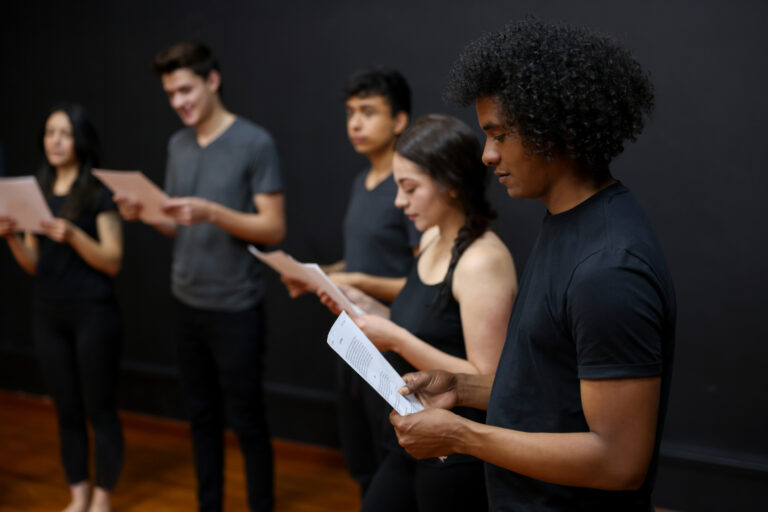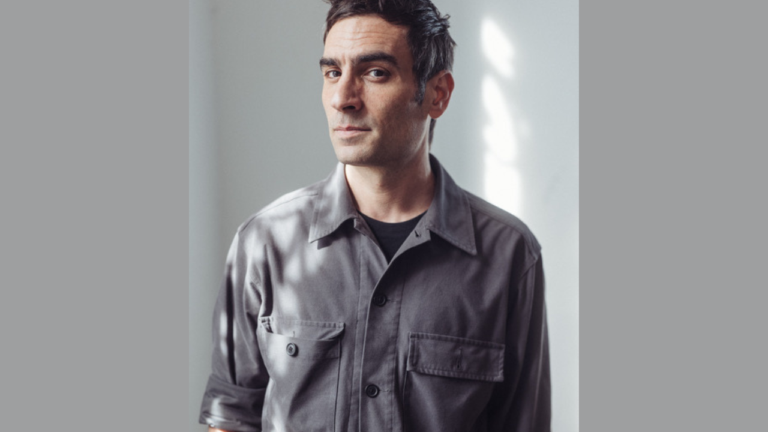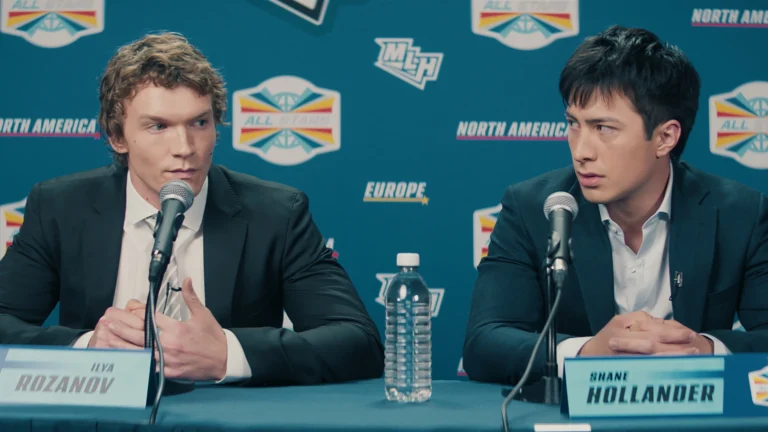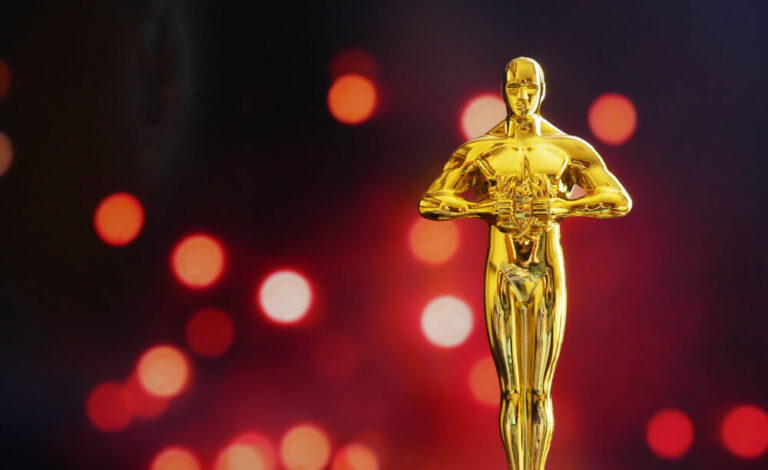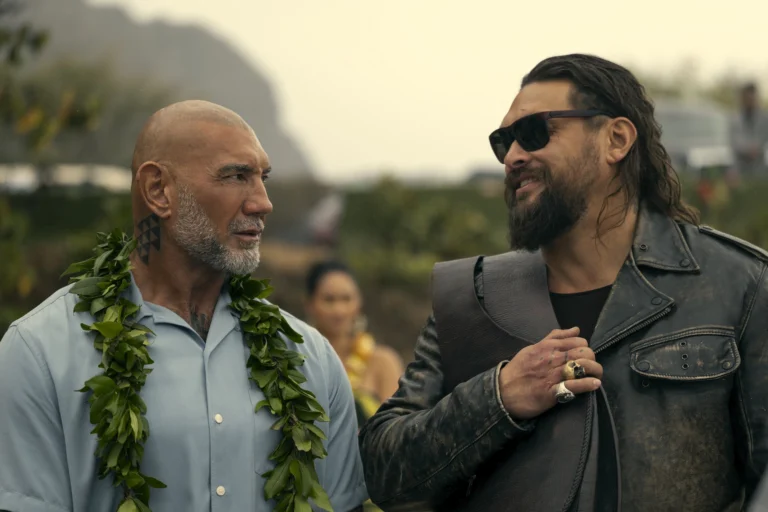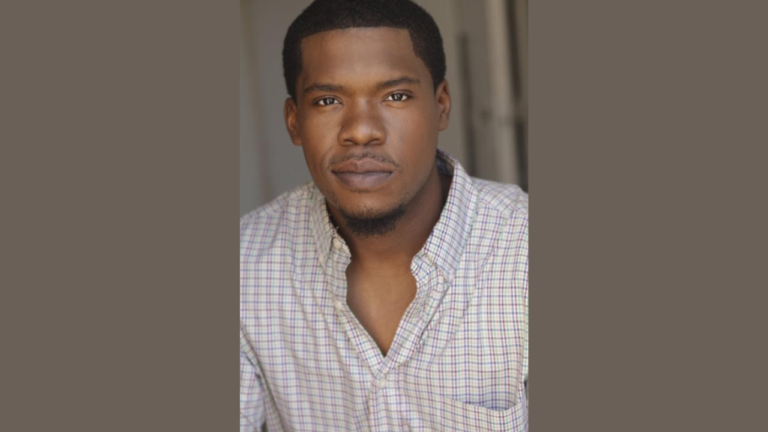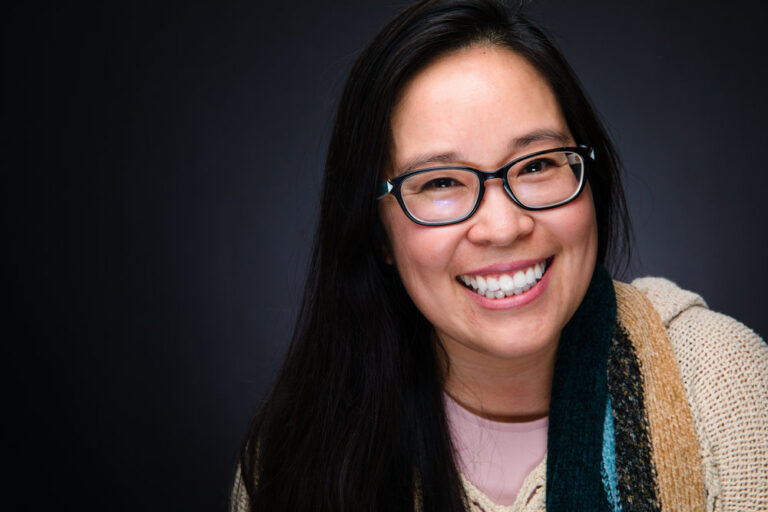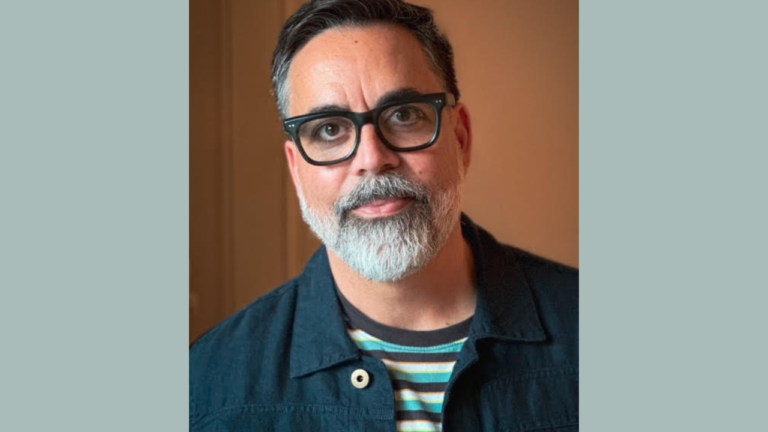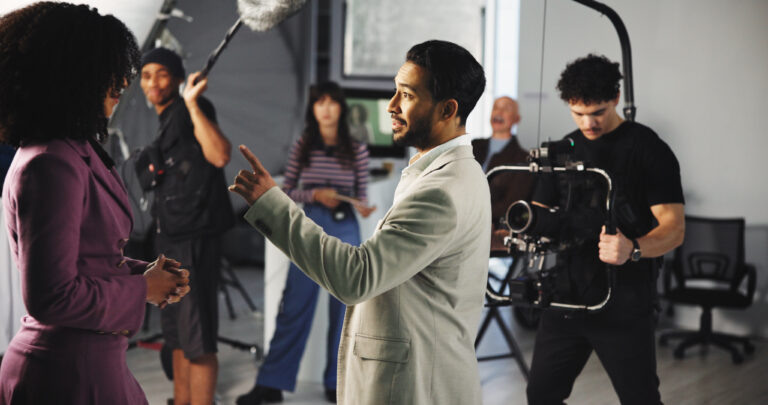English casting director Sarah Trevis not only works on projects based on real life, but she also casts a fair amount of them. There’s Hotel Rwanda, of course, and more recently the Colin Firth-led limited series Lockerbie: A Search for Truth. Still, she also cast the bonkers Indian smash hit RRR, and was on the teams that put together Phantom Thread and Mary Poppins Returns. To put it lightly, her career is one of impressive variation.
This fall, her latest project will hit theaters. Based on a true story, Truth & Treason is about a German youth in the midst of World War II who learns the terrible truth about what his nation is doing to Jewish people. He launches a resistance to expose the truth, and decides what it truly means to be a good German. The movie stars Ewan Horrocks, Ferdinand McKay and Rupert Evans, and hits theaters on October 17. Trevis spoke to us from her office in London.
Insights From Sarah Trevis
- Find inspiration in everyday life and use your surroundings to deepen your understanding of characters.
- Be open to unconventional career paths and opportunities that may not look like traditional acting roles.
- Stay patient and persistent, knowing that meaningful projects and success often take time to develop.
How did you get into casting in the first place?
My mother taught dance, and I always loved the theater. She was a single mother who worked three jobs. During the school holidays, my sister, who is much older than I, would work in a theater in Glasgow, and I’d be sent to stay with her. I grew up in the theater, and I used to watch rehearsals and plays.
It was a very interesting place. The Glasgow Citizens Theatre did loads of European shows and plays I’ve never even seen since, lots of new translations that really honed my taste.
I didn’t really want to act, but I loved actors, and I joined the National Youth Theatre. I attended university, where I acted and directed, but I didn’t really want to pursue a professional acting career. I really did want to do something involving actors, but I just didn’t quite know what that was. I went to meet casting director Mary Selway when I turned 18, but I was far too young to do anything. I was planning to attend university anyway.
Then I worked in documentaries for five years, and by coincidence, I saw Mary again in the theater, where she was taking options on books and wanting to produce her own projects. She actually hired me as someone to look after those, and when she went back into casting, I went with her. It was a very lateral way in.
That’s a common theme. Coming to it laterally.
What I like about casting is that everybody’s got a slightly different story of how they started, because it hasn’t been a very linear job up till now. It is getting more like that now, but before, people came from different backgrounds, started in different fields and eventually found casting.
It’s interesting that you loved actors, but never wanted to act, as so many casting directors come to it from acting.
I think when you’re growing up, acting seems the most visible profession to choose, and if you don’t feel that you want to be an actor, it’s quite hard to understand what you do want to be. Through your love of actors, you realize there’s a job where you can actually do your hobby and be paid for it.
That’s what’s so seductive about [casting]. You get to have that experience with actors, spending time in their company and feeling that life, but not really living it in the same way.
Was there a specific moment when you realized casting was your calling?
I loved working on documentaries. I was a researcher and a fact checker. I was good at it, and I worked really hard at it, which really satisfied a lot of my intellectual curiosity. I was an avid reader, and all that really fed into a great big part of my personality.
However, I felt instinctively that something was missing, and I kept thinking, “Is it that I want to work on dramatic material rather than hard reality?” Then, when I had the opportunity to work with Mary, something clicked, and I thought, “This is the perfect synthesis of all my great loves.”
I would think being a researcher and fact checker would translate really well into casting, because of the digging that you have to do to put the pieces of the puzzle together.
Yeah, and I think that also, I’ve always been residually attracted to dramas that are based on real lives and real history and real events. That, to me, is, again, a part of the leftovers from my documentary work. I worked on Lockerbie, and I did Truth & Treason. I did Hotel Rwanda. I create content based on real-life events. I love stories that are based on real people.
Since you mentioned Truth & Treason, I want to talk about that, but first, can we talk about how awesomely bonkers RRR is?
It was bonkers to work on, but it was great because it was my first time working on an Indian film. [Director] S.S. Rajamouli is very respected. He’s kind of the Spielberg of India, and he does extraordinary things. I just loved working with him.
What was so bonkers about working on it?
The Indian film industry operates in a distinctly different manner. They write a section of script, shoot it, and then repeat the process with the next section.
Really?
Yes, and this was all compounded by COVID. Indian actors would work on the Rajamouli script, and then go off and do another film. Then they’d come back and work on the next section, then go off, and sometimes they’re doing that on four or five different projects at the same time.
It’s a completely different way of working, and it’s very alien to British and American actors, because they’re used to having a very compacted period of time with a completed script. They know the story arc, they know the character arc, and they commit to the project.
I was saying to people, “You’re going to India, you’re coming back, they might want you to go back again. You’re coming back, they might want to go back again.” That went on for about two years.
You’re right. That is totally bonkers. Okay, back to Truth & Treason. How did you end up on the project, and what was the process of putting it all together?
I was first contacted by that team in 2006. I remember I was really attracted to the story, and the guy whose story it was, [Karl], was still alive. He had survived the war, he’d survived interment, and all kinds of terrible things that happened to him. He wrote his story, the producers found it, they contacted me and I started to cast it.
For various reasons at that time, it didn’t take. I remember that my kids had just started school then, and then they contacted me again as my kids were just leaving university, and they said, “We’ve actually got the money for this same team. Karl is no longer with us, but we’ve got the money and we want to make it.” They stayed with me, and I stayed with it for almost 20 years.
That must have been a truly creative and triumphant experience to see a project through to fruition over nearly two decades.
It was really thrilling, and they’re really nice guys, wonderful to work with. It was great to revisit something you thought was dead in the water, only to discover it had a life and could be made. The people who had nurtured it for so many years now had a chance to complete that story.
Does that kind of success story serve as inspiration for you?
The movie business is about people who feel passionate about telling stories, and I just love the endeavor of this team, who believed in it and really wanted to make it happen. I love that passion in people. That’s what’s attractive about the film industry — it’s not all just glib and transient.
Some people hold on to stories that they really believe in for a very, very long time. I like those kinds of people. I really admire that.
Speaking of passion, what piece of advice or wisdom would you give to an actor coming in to see you?
I think that often, actors have to do quite mundane work to make sure they have a life, to pay rent, to do all that kind of thing. Try to hold on to your artistry in some way, and even look in the mundane for inspiration.
When you’re working as a barista or in a similar unrelated field, try to hold on and find inspiration from characters that come into your orbit and world, and always be searching for inspiration. Even in the most mundane kind of situations, there might be a little nugget of gold that you could use in the future for your work.
So much of your time is spent doing something other than what you really want to do and were trained to do, which really satisfies you. Keep that artistic inspiration alive, the best you can.
Final Takeaways
Sarah Trevis’s journey into casting reveals how passion, persistence, and a willingness to embrace unconventional paths can lead to a fulfilling career in the industry. Her love for storytelling, combined with patience and curiosity, shaped her unique approach to casting, especially in projects rooted in real life. For new actors, her insights offer practical ways to nurture your craft and mindset amid the challenges of breaking in.
- Stay curious and observe everything: Find inspiration in everyday life and the people around you, even in unrelated jobs or mundane moments.
- Embrace unconventional paths: There’s no single “right” way to enter the industry; be open to lateral moves and unexpected opportunities.
- Keep your artistic fire alive: Even when working outside of acting, hold on to your passion and keep practicing your craft mentally and emotionally.
- Be patient and persistent: Great projects and breakthroughs often take time; don’t lose faith if things don’t happen immediately.
- Value collaboration and passion: Surround yourself with people who truly believe in their stories and craft, as that energy fuels success.
By staying grounded in your artistry and open to diverse experiences, you’ll build a resilient foundation that serves you through the unpredictable journey of acting.

